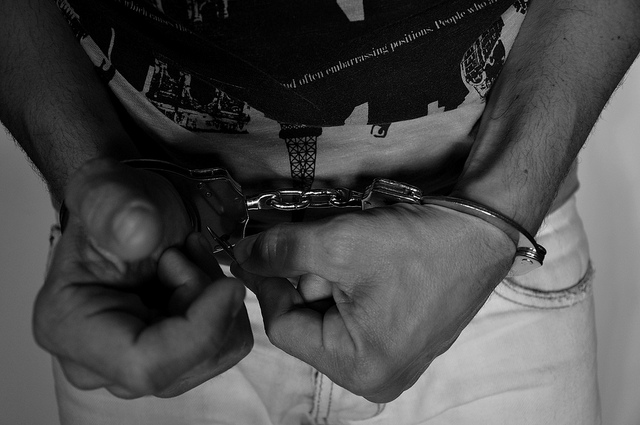
Jurisprudence: Unlocking Global Justice Theories
September 27, 2013
Interview: Head of the School of Law
October 4, 2013Some criminal offences are motivated by financial gain. Obvious examples include fraud, theft and drug trafficking. It is recognised that offenders should not be able to benefit from their criminal conduct, so the courts have the power to confiscate any benefit that a defendant may have received from his crime.
The power to make a confiscation order derives from…POCA 2002.
Confiscation orders are the mechanism by which the courts are able to do this. In 2011, 10,639 individuals were sentenced for drug trafficking offences. Of these, 1,161 people were ordered to pay a confiscation order. £7,695,153 was confiscated from such offenders, with the average confiscation order being £6,628.
Confiscation orders
The power to make a confiscation order derives from the Proceeds of Crime Act 2002 (POCA 2002). Confiscation orders are available following a conviction. Confiscation proceedings seek to recover any financial benefit that an individual has gained as a result of his offending. The court works out the value of the benefit in monetary terms that the defendant received, and orders him to pay an equivalent sum, or less, if a lower sum is available. The sum is effectively a debt, and this is owed by the defendant to the Crown. If he fails to pay the sum, enforcement action can ensue, and the offender can be imprisoned.
When is an individual liable to a confiscation order?
Determining whether or not a confiscation order can be made and if so, what the amount should be, involves several steps.
Firstly, Section 6(2) POCA provides that a confiscation order is available if one of the following three conditions is satisfied:
- The defendant pleaded guilty or was convicted at the Crown Court.
- The defendant was committed to the Crown Court under Sections 3, 4 or 6 of the Powers of Criminal Courts (Sentencing) Act 2000.
- The defendant was committed to the Crown Court with a view to a confiscation order being considered, under Section 70 POCA 2002.
The second step is to decipher when the offence took place. The provisions of POCA 2002 apply only to offences committed on or after 24 March 2003. If the offence occurred before this date, earlier confiscation regimes apply.
The third question to ask is whether or not the defendant has a ‘criminal lifestyle’, as defined in Section 75(1) POCA 2002.
The final question is to determine whether the defendant has benefited from his general criminal conduct (Section 76(2) or from his ‘particular criminal conduct’ (Section 76(3) POCA 2002). In determining whether the defendant has a criminal lifestyle or gained a benefit, the standard of proof is on the balance of probabilities.
Once these conditions are satisfied, the court must then calculate the benefit accrued by the defendant through his criminal activity (Section 10 POCA 2002) and also the available amount. ‘Available amount’ is defined in Section 9(1) POCA 2002. It is the aggregate value of the free property held by the defendant and the total of the values of all tainted gifts.
Confiscation proceedings seek to recover any financial benefit that an individual has gained as a result of his offending.
What if the available amount is less than the benefit?
The court can make the order for the available amount or a nominal amount, or can consider giving the defendant time to pay the full amount.
Confiscation proceedings
Confiscation proceedings can be instigated either by the prosecution or by the court of its own motion (Section 6(3) POCA 2002). The standard of proof in confiscation proceedings is the balance of probabilities. Sometimes, the court may even assume the defendant’s assets, such as property, even if that particular asset was not acquired in the course of criminal conduct.
Sometimes, the court may even assume the defendant’s assets, such as property…
Section 11 POCA 2002 states that the amount to be paid courtesy of the confiscation order must be paid on the date which the order is made. The court may extend this, and give the defendant a period of time to pay for up to six months, if he can show that he needs time to pay. If the defendant needs time beyond the six month period, he can make an application to the court for a further extension. The court has the power to grant a further extension if there are exceptional circumstances which justify doing so. In such proceedings, the prosecutor always has the opportunity to make representations as regards the issue and the court may consider the prosecutor’s objections to extension.
In addition to the sum stated within the order, interest is payable on the unpaid amount (Section 12 POCA 2002). This is to encourage speedy payment. If however an application to extend time to pay has been made within 12 months of the order being made, and has not been determined by the court, interest is not payable. The court has no discretion to waive payment of interest.
Section 67 POCA 2002 gives the Magistrates’ Court the power to obtain money from a defendant’s bank or building society for the purpose of confiscation.





